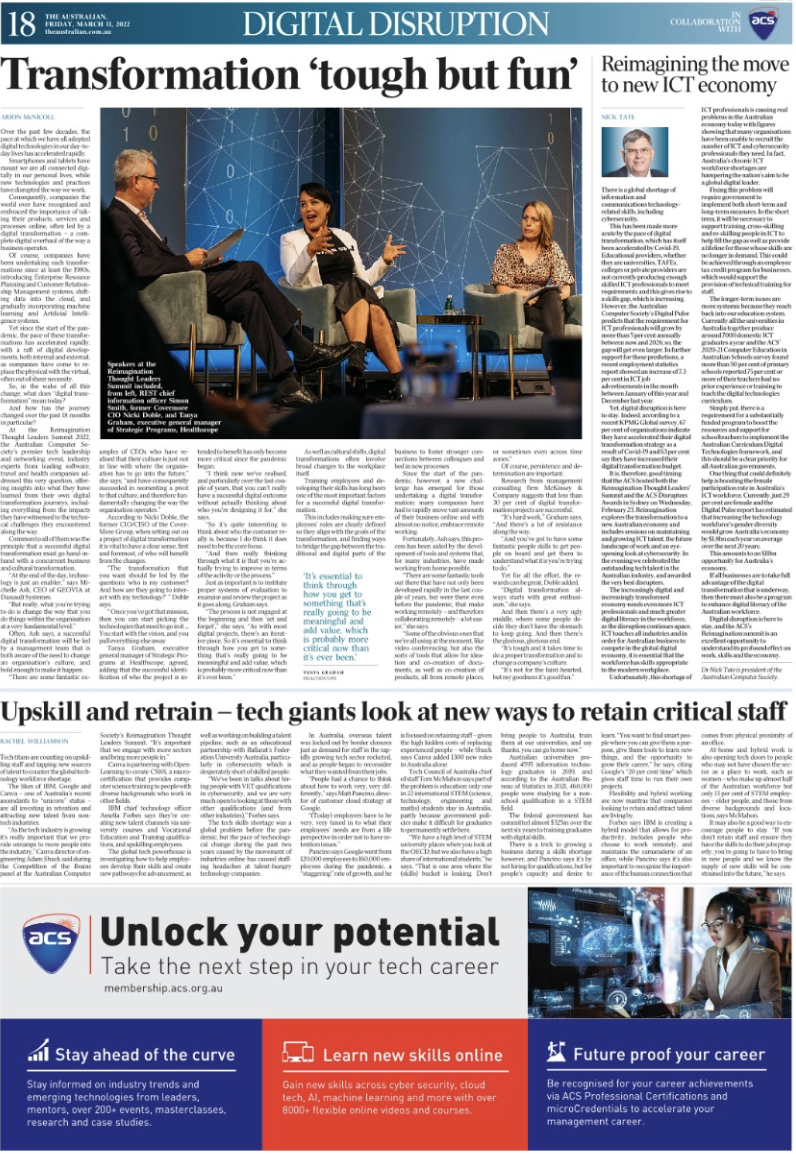The Australian: Reimagining the move to new ICT economy
This 2022 article from the Australian details key insights from the Reimagination Thought Leaders Summit 2022 and reveals how the digital transformation picture changed.
What does digital transformation mean today?
Over the past few decades, the pace at which we have all adopted digital technologies in our day-to-day lives has accelerated rapidly.
Smartphones and tablets have meant we are all connected digitally in our personal lives, while new technologies and practices have disrupted the way we work.
Consequently, companies the world over have recognised and embraced the importance of taking their products, services and processes online, often led by a digital transformation – a complete digital overhaul of the way a business operates.
Of course, companies have been undertaking such transformations since at least the 1980s, introducing Enterprise Resource Planning and Customer Relationship Management systems, shifting data into the cloud, and gradually incorporating machine learning and Artificial Intelligence systems.
Yet since the start of the pandemic, the pace of these transformations has accelerated rapidly, with a raft of digital developments, both internal and external, as companies have come to replace the physical with the virtual, often out of sheer necessity.
So, in the wake of all this change, what does "digital transformation" mean today? And how has the journey changed over the past 18 months in particular?
At the Reimagination Thought Leaders Summit 2022, the Australian Computer Society premier tech leadership and networking event, industry experts from leading software, travel and health companies addressed this very question, offering insights into what they have learned from their own digital transformation journeys including everything from the impacts they have witnessed to the technical challenges they encountered along the way.
Common to all of them was the principle that a successful digital transformation must go hand-in-hand with a concurrent business and cultural transformation.
"At the end of the day, technology is just an enabler," says Michelle Ash, CEO of GEOVIA at Dassault Systemes.

